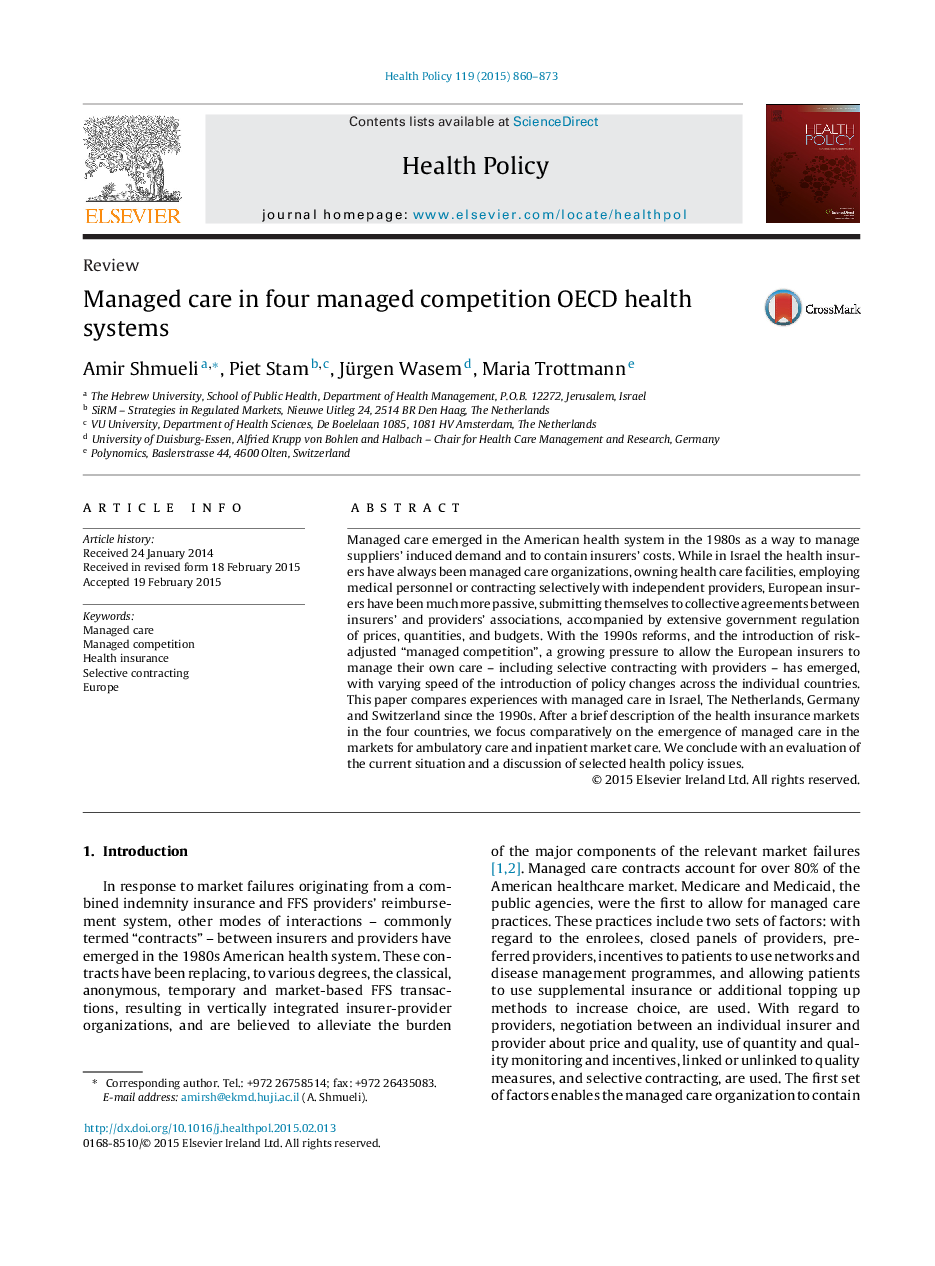| Article ID | Journal | Published Year | Pages | File Type |
|---|---|---|---|---|
| 6239291 | Health Policy | 2015 | 14 Pages |
â¢Managed care emerged as a way to manage suppliers' induced demand.â¢European insurers have been subjected to collective agreements.â¢We describe the emergence of managed care in Israel, The Netherlands, Germany and Switzerland since the 1990s.
Managed care emerged in the American health system in the 1980s as a way to manage suppliers' induced demand and to contain insurers' costs. While in Israel the health insurers have always been managed care organizations, owning health care facilities, employing medical personnel or contracting selectively with independent providers, European insurers have been much more passive, submitting themselves to collective agreements between insurers' and providers' associations, accompanied by extensive government regulation of prices, quantities, and budgets. With the 1990s reforms, and the introduction of risk-adjusted “managed competition”, a growing pressure to allow the European insurers to manage their own care - including selective contracting with providers - has emerged, with varying speed of the introduction of policy changes across the individual countries. This paper compares experiences with managed care in Israel, The Netherlands, Germany and Switzerland since the 1990s. After a brief description of the health insurance markets in the four countries, we focus comparatively on the emergence of managed care in the markets for ambulatory care and inpatient market care. We conclude with an evaluation of the current situation and a discussion of selected health policy issues.
